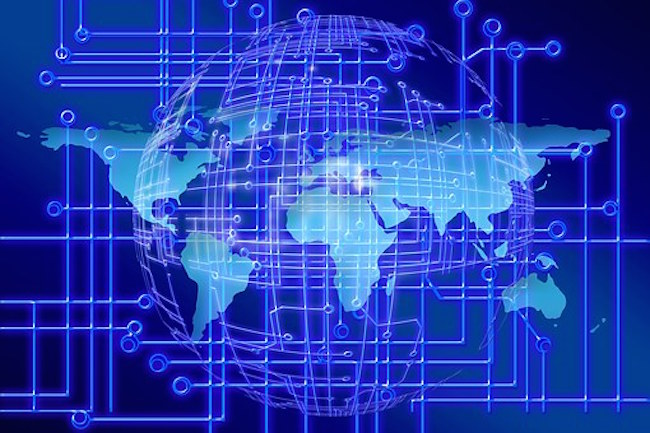The War on Cash: US Exploring a “Digital Dollar” BY MICHAEL MAHARREY for Schiff Gold
Last year, China launched a digital yuan pilot program. The Chinese government-backed digital currency got a boost when the country’s biggest online retailer announced the first virtual platform to accept the Chinese digital currency. China isn’t the only government exploring the possibility of digital money. Sweden has developed a digital currency of its own. The European Central Bank is pushing for a digital euro. And Russian central bank governor Elvira Nabiullina recently told CNBC that digital currency is “the future of our financial system.”
So, how long before a digital dollar comes to the United States? Well, it’s already in the pipeline.
Federal Reserve Governor Lael Brainard recently said the US central bank is “stepping up its research and public engagement on a digital version of the US dollar.”
A week earlier, Federal Reserve Chairman Jerome Powell announced that the central bank will release a paper this summer exploring how government-backed digital currencies could affect payments.
Ultimately, it would take a congressional act to establish a digital dollar as legal tender.
US officials have already toyed with the possibility of a digital dollar. A Democratic proposal for stimulus payments in the wake of the coronavirus pandemic featured digital currency deposited into digital wallets.
Central bank digital currencies are similar to cryptocurrencies such as bitcoin. They are virtual banknotes or coins that exist in a digital wallet on your smartphone instead of a billfold or a purse. The difference between a government digital currency and bitcoin is the value of the digital currency is backed and controlled by the state, just like traditional fiat currency.
Government digital currency is sold to the public as a safe and convenient alternative to physical cash. We’re also told it will help stop dangerous criminals who like the intractability of cash. But at the root of the move toward government digital currency is “the war on cash.” Fundamentally, it’s about control. The elimination of cash creates the potential for the government to track and even control consumer spending, and it would make it even easier for central banks to engage in manipulative monetary policy such as negative interest rates.
Economist Thorsten Polleit outlined the potential for Big Brother-like government control with the advent of a digital euro in an article published by the Mises Wire. He notes that while many economists praise central bank digital currency as an “innovation,” — an important and indispensable step in an increasingly digitized world — there are dangers lurking behind this digitalization of government fiat currencies. As Polleit put it, “the path to becoming a surveillance state regime will accelerate considerably if and when a digital euro is issued.”
With digital currency, governments can easily track digital payments, something they can’t do in a cash-based system. As Bloomberg put it in an article published when China launched its digital yuan pilot program, digital currency “offers China’s authorities a degree of control never possible with physical money.” Specifically, a digital currency would allow the Chinese government to more closely monitor mobile app purchases, accounting for about 16% of the country’s GDP. The government could even “turn off” an individual’s ability to make purchases. Bloomberg describes just how much control a digital currency could give Chinese officials.
The PBOC has also indicated that it could put limits on the sizes of some transactions, or even require an appointment to make large ones. Some observers wonder whether payments could be linked to the emerging social-credit system, wherein citizens with exemplary behavior are ‘whitelisted’ for privileges, while those with criminal and other infractions find themselves left out. ‘China’s goal is not to make payments more convenient but to replace cash, so it can keep closer tabs on people than it already does,’ argues Aaron Brown, a crypto investor who writes for Bloomberg Opinion.”
We got a first-hand look at what happens when governments restrict access to cash when India plunged into a cash crisis after the country’s government enacted a policy of demonetization in November 2016.
It’s clear from Brainard’s comments that the Federal Reserve is also concerned about control. The central bank doesn’t want any kind of currency competition with the dollar. She talked about the growing number of “stablecoins” – digital assets linked to more traditional stores of value such as gold or silver.
“If stablecoins were to be widely adopted and serve as the basis of an alternative payment system oriented around new private forms of money, there’s a real risk that you could see fragmentation of the payment system,” Brainard said.
Governments around the world have quietly waged a war on cash for years. Back in 2017, the IMF published a creepy paper offering governments suggestions on how to move toward a cashless society even in the face of strong public opposition.
The war on cash is not merely theoretical. There has been a steady push to eliminate, or at least limit, the use of cash around the world. The European Central bank stopped producing and issuing 500-euro notes in 2018. Not long before the EU announced its plan, a former Obama economic adviser/ex-Treasury secretary floated the idea of eliminating the $100 bill in the US. Banks have also gotten in on the act. Last year, Chase capped ATM withdrawals for non-Chase customers at $1,000 per day.
It’s important to remember that the war on cash is about power and control. By controlling access to your own money, banks and governments increase their control over you. They can collect maximum taxes and fees, they can track purchases. They can limit what you buy. And they can “incentivize” you to comply with their edicts.
Needless to say, many people like cash and the relative freedom it provides. In a worst-case scenario, they can at least shield their wealth by shoving cash under their mattresses. You can’t do that if there isn’t any cash.




